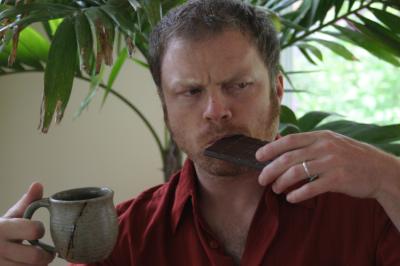Everytime I think about the SGT book club, one thing that amazes me is that there is always more to read. You would think that every issue about food might one day be used up, but so complicated is our relationship to food, there is a never ending stream of interesting and useful reading within our grasp. So is this month's pick, American Wasteland: How America Throws Away Nearly Half Its Food (and what we can do about it) by Jonathan Bloom.
Having worked in just about every area of food production from farm to grocery to dishwasher and cook, it is not hard for me to believe that we waste quite a lot. But to say half...this is disturbing. Then I had to go and watch a documentary titled "Dive, Living Off America's Waste" and it started to seem more real, more problematic and frankly, more sad. To complete our understanding of why we waste so much food in this country, comes this book, by journalist Bloom. It is a complete take, from the problems with modern farming and trade policy that leaves food rotting in the field, to the psychological and organizational problems that we have in our own kitchens. Surely, this is a potential motivator to make a quick difference in our own lives as well as any difference we can make in our purchasing and policies that might effect the bigger picture.
Check out a used or new copy at Better World Books or locally at Magers and Quinn and come join in one of our book clubs to further the discussion and finds others to help make a change. If you are in Minneapolis, the Linden Hills Coop hosts the book club discussion on Wednesday, March 28, 2012 from 6:30-8:30.
In Bemidji, our group will be meeting at Harmony Natural Food Co-op in downtown Bemidji, Thursday, March 29th at 5:30. For information, call 218-766-8926.
In New Ulm, the book club meets Thursday the 29th from 6:30-8:30 at Lola's Larkspur Market. Contact:brookeknisley@yahoo.com
Here are some reviews to further pique your interest:
From Booklist:
In one of the twenty-first century’s most appalling ironies, developed nations throw away massive amounts of food while people in remote lands starve. Journalist Bloom documents some specifics about the nature of wasted food in the twenty-first century and calls into question both the economic efficiency and the morality of such profligacy. He finds food crops lying rotting in fields owing to intentional social policy, economic vagaries, and sheer ignorance. In restaurants, portion sizes have ballooned under the mantras “Bigger is better” and “Would you like to supersize that?” And many Americans allow food to decay on refrigerator shelves out of carelessness, lack of meal planning, and sheer ignorance. Bloom has found some hopeful signs that this trend may be waning. Many grocery stores and restaurants dispose of surplus edibles through food pantries and similar charitable outlets. Some socially conscious farmers are trying to revive the ancient practice of allowing the poor to glean. --Mark Knoblauch
From Better World Books:
Grocery prices and the forsaken foods at the back of your fridge seem to increase weekly. After reading "American Wasteland," you will never look at your shopping list, refrigerator, plate, or wallet the same way again. Jonathan Bloom wades into the garbage heap to unearth what our squandered food says about us, why it matters, and how you can make a difference starting in your own kitchen--reducing waste and saving money. Interviews with experts such as chef Alice Waters and food psychologist Brian Wansink, among others, uncover not only how and why we waste, but, most importantly, what we can do about it.

Lawrence Black is a writer and editor at Simple, Good and Tasty. He can be reached at lawrence@simplegoodandtasty.com. He has already been digging in the dirt and compost, so his mind may be with the worms.




